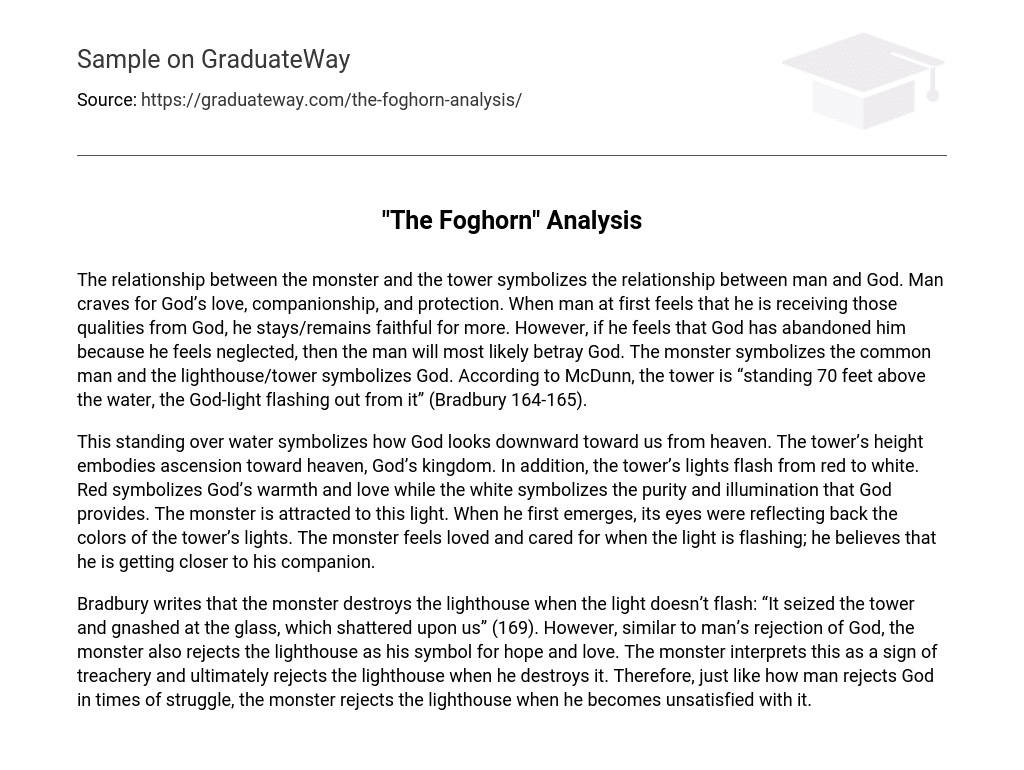The relationship between the monster and the tower symbolizes the relationship between man and God. Man craves for God’s love, companionship, and protection. When man at first feels that he is receiving those qualities from God, he stays/remains faithful for more. However, if he feels that God has abandoned him because he feels neglected, then the man will most likely betray God. The monster symbolizes the common man and the lighthouse/tower symbolizes God. According to McDunn, the tower is “standing 70 feet above the water, the God-light flashing out from it” (Bradbury 164-165).
This standing over water symbolizes how God looks downward toward us from heaven. The tower’s height embodies ascension toward heaven, God’s kingdom. In addition, the tower’s lights flash from red to white. Red symbolizes God’s warmth and love while the white symbolizes the purity and illumination that God provides. The monster is attracted to this light. When he first emerges, its eyes were reflecting back the colors of the tower’s lights. The monster feels loved and cared for when the light is flashing; he believes that he is getting closer to his companion.
Bradbury writes that the monster destroys the lighthouse when the light doesn’t flash: “It seized the tower and gnashed at the glass, which shattered upon us” (169). However, similar to man’s rejection of God, the monster also rejects the lighthouse as his symbol for hope and love. The monster interprets this as a sign of treachery and ultimately rejects the lighthouse when he destroys it. Therefore, just like how man rejects God in times of struggle, the monster rejects the lighthouse when he becomes unsatisfied with it.





